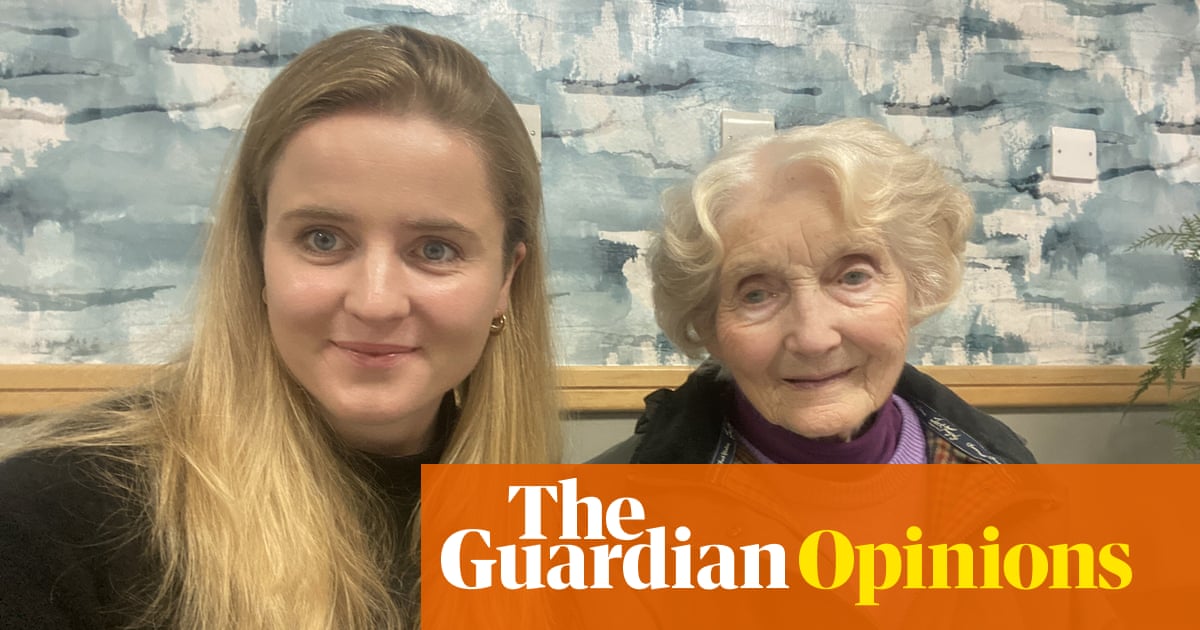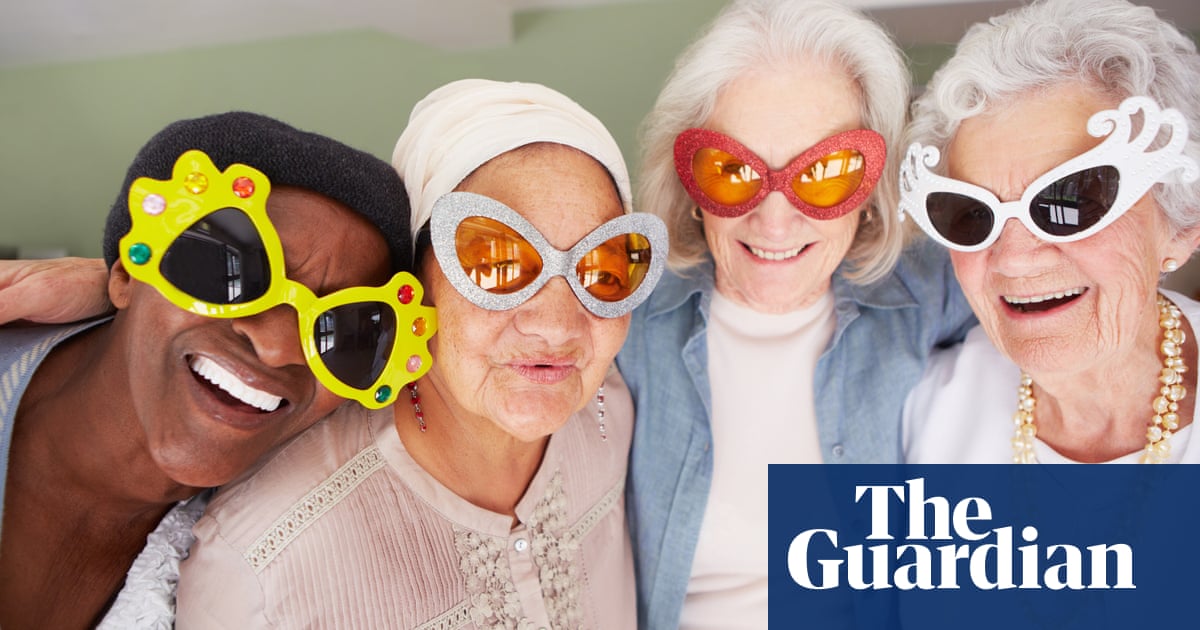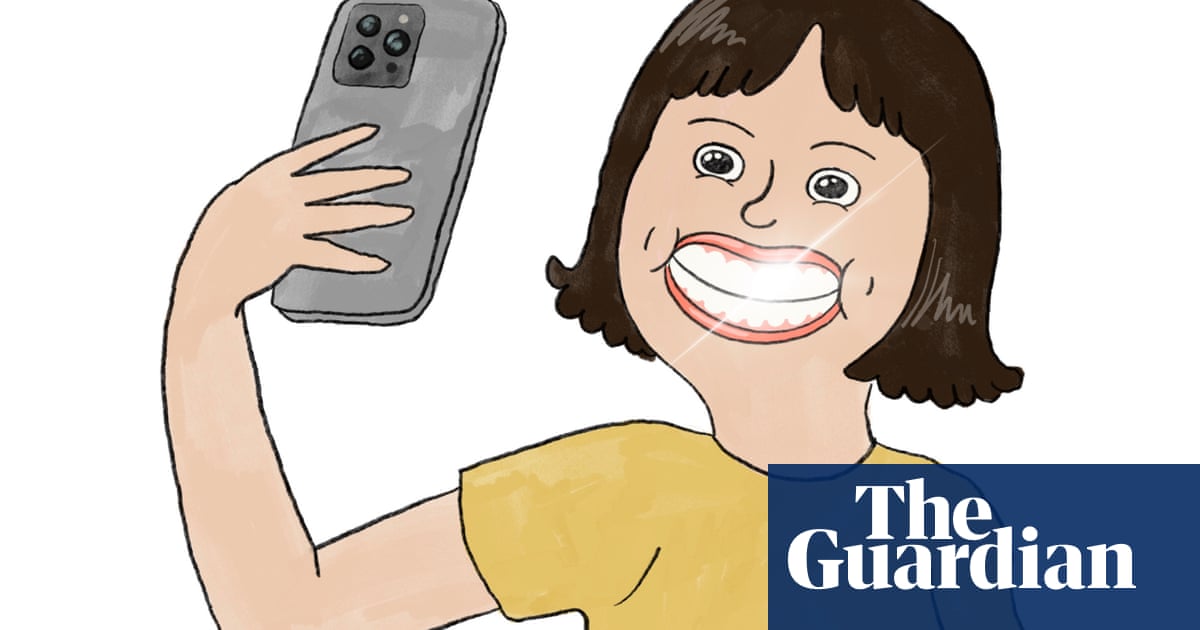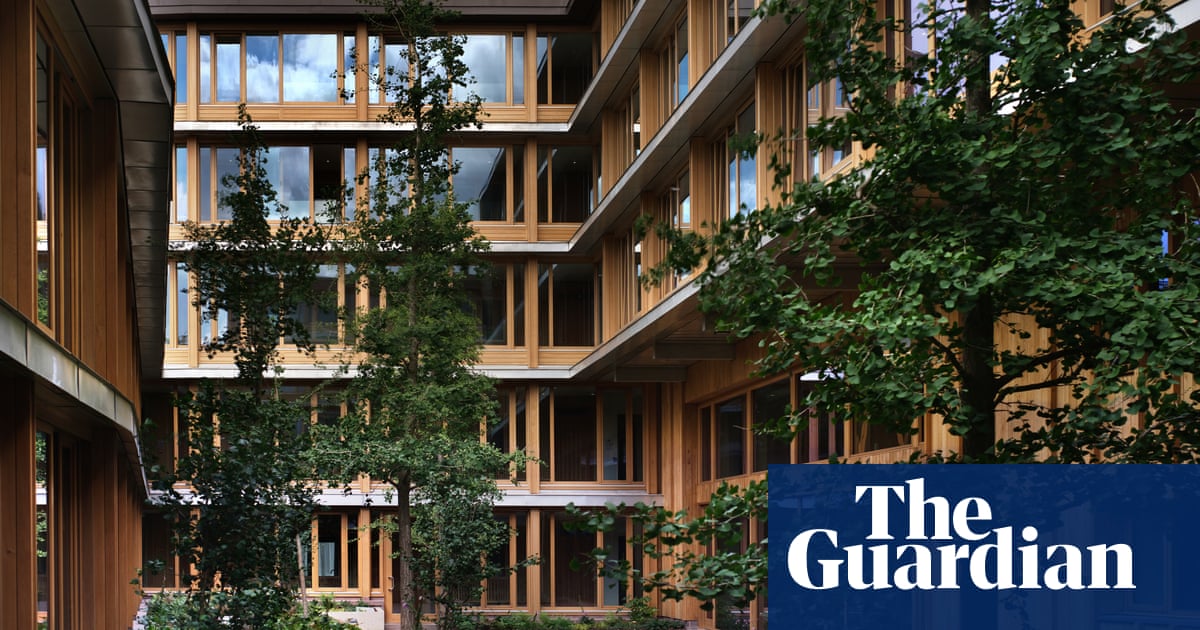
It’s Monday morning, and I should be at work. Instead I’m in a draper’s shop on the high street in Hythe, Kent, helping my 86-year-old grandma buy elastic. “Elastic bands?” the assistant asks. “No, knicker elastic,” Grandma says firmly. She tuts. “Mine’s getting all worn out.”
Ten minutes later we leave with the elastic in a paper bag, along with some shoulder pads, which Grandma intends to sew into a jacket. She will do this with the same ease she exhibits when replacing her knicker elastic. There’s no question of her buying new ones, as I would. “Nearly lunchtime,” Grandma says (it’s 10.30am). “I’ve made a lovely quiche.”
I waver. I hadn’t planned to stay for lunch and I need to get back to London for a meeting. But if I go, Grandma will eat lunch on her own, as well as dinner. She senses my hesitation, and I notice sadness beneath her steeliness. “Quiche sounds great,” I say.
This act of extraordinary selflessness aside, I don’t consider myself a good grandchild. Now in my early 30s, I’ve been fortunate to have four brilliant grandparents, with Grandma the last surviving one. The youngest of the quartet, she’s had a grand total of about four glasses of wine in her life and only eats home-cooked food, so perhaps it’s not surprising she’s still going (fairly) strong. As a child I saw her at least once a week. These days it’s twice a month at most, as I hurtle guiltily down from London to take her shopping or to the doctor’s if my mum is unavailable. In between visits, keeping in touch means a call to Grandma’s landline. Unlike many of her contemporaries, she hasn’t adapted to using a smartphone or laptop.
Despite my guilt at not being able to see my grandma more regularly, I was unsurprised to read last week that, according to a study of 458,000 adults in their 50s, 60s and 70s, monthly visits from grandchildren can add years to the lives of elderly people. The researchers from the University of Glasgow examined how human connection can reduce the risk of death, and found that regular visits from friends and family was the most important factor in extending life.
Without visits from close family, I know that Grandma would be very isolated, as my grandfather and most of her friends and family have died. She manages to keep busy, mostly by maintaining impossibly high standards of housekeeping. She still irons everything – towels, handkerchiefs, even socks – as she has done since she married my grandfather in 1955. But she needs more support from us, particularly with administrative tasks such as booking a GP appointment. The study suggests that visits from family often prompt people to seek healthcare, meaning they live longer. I’m sure this is or was true for all my grandparents – particularly my grandfather, whose oesophageal cancer was caught early enough for radiotherapy when my mum noticed that he was having difficulty swallowing his food.
Two years after my grandfather’s death, my grandma bears her loneliness – mostly – with stoicism. Her pace of life is slow: visiting her entails an enforced and welcome deceleration. With her, I must stop marching and walk slowly; stop gabbling and speak clearly. Doing this makes me notice things differently – even have different thoughts. Immediacy is of no interest to Grandma. When I order things from Amazon for her, I turn off Prime because she’s suspicious if the items arrive “too quickly”.
It’s not just family who play the role of carer, but strangers, too. People help Grandma when she accosts them in shops or on the street; they take her arm on escalators; they carry things to her taxi or give up their seat on the bus. It’s these everyday acts of support – the “extra pair of hands” of which Kate Mosse writes so eloquently – that enable my grandma to maintain the independence she cherishes. The study suggests that visiting grandparents more than once a month doesn’t offer any additional benefit in terms of mortality risk, but I do think that more frequent visits greatly enhance my grandma’s quality of life – because they enable her to keep doing things, rather than being stuck in a chair.
Sometimes our relationship is strained. There’s no elasticity in Grandma’s opinions. Women should not be seen in pubs; vegetables must be cooked to within an inch of their lives; and if you leave the back door open for more than 30 seconds, the house will be invaded by mice. When we take her to the GP, Grandma proudly parrots these old wives’ tales to him. She believes in the patriarchy: she genuinely misses having a man in the house to tell her what to do, how to live.
I can’t agree with most of Grandma’s views, but I don’t snap at her, or tease her as I would with friends. Compassion is the only option, and I think it’s good for me to step out of my echo chamber and practise tolerance. After all, it’s payback time. Grandma has cared for me all my life: sewn every costume and baked every birthday cake. She’s been an avid supporter of my education and career, having had neither herself. As my life has become more hectic and in some ways more self-absorbed, Grandma’s reliance on me and my family is increasing. But she remains endlessly loving, caring and present. And I need her, too, more than I can possibly say.
Ellie Keel is a writer and theatre producer, and the founder director of the Women’s Prize for Playwriting












